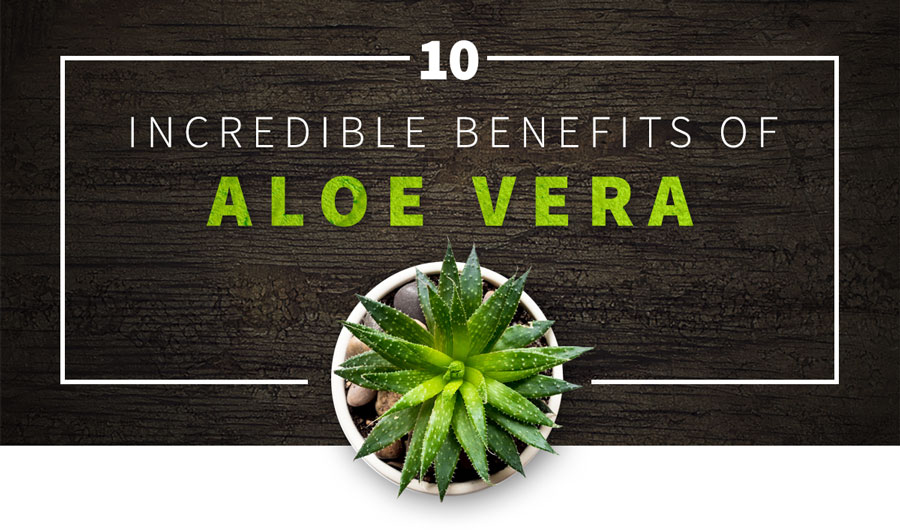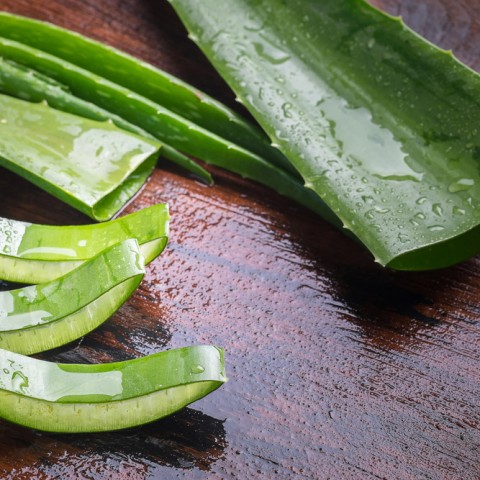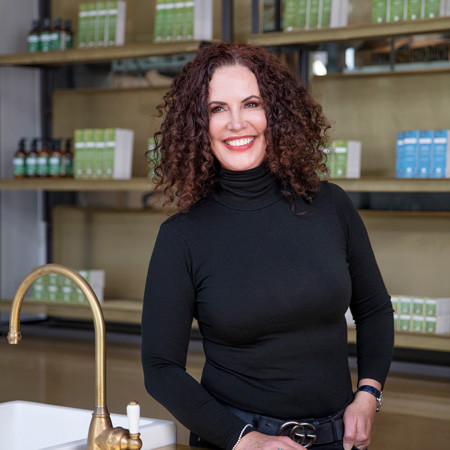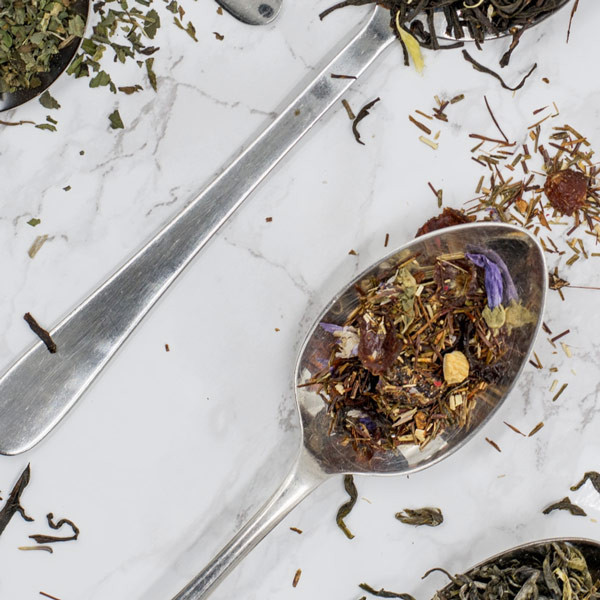
It’s no wonder aloe vera has a reputation as one of the world’s most foremost healing plants. A distant relative to the onion and garlic family, this small succulent plant is native to the tropical region of North Africa — where it still may be found growing wild. The plant has been cultivated for centuries for both medicinal and cosmetic purposes not just in the Middle East and North Africa but throughout the world.
The aloe vera plant is a type of succulent and most famous (and widely used) member of the Aloe family of which there are around 400 members. The plant, like all succulents, benefits from its ability to store moisture. Part of this is the sticky gel that you see when a branch of the plant is snapped off.
Known as the plant of immortality, this wonder plant has amazing health benefits both for external and internal use. Science has shown that aloe vera contains powerful antioxidants which the body uses to help stop harmful bacteria growth. These antibacterial properties are one of the most important benefits of aloe vera, according to this study, as it has the potential to alleviate symptoms of a number of common health problems.
-
Skin moisturiser. Legend has it that aloe vera was used to preserve Cleopatra’s skin after her death. Indeed there are claims that both she and Nefertiti drank and bathed in the juice of the Aloe Vera plant to preserve their youthful skin. The aloe vera gel remains popular today as a rejuvenating and soothing natural skin tonic. It works by helping to remove dead skin cells and revitalising the skin by improving its elasticity making it moister and more supple. Simply break the leaf of the plant and squeeze out the gel and apply gently on skin areas. Or you can use some of the excellent Aloe-based skin products available.
-
Sunburn relief. One of the best and most natural topical treatment for sunburn relief, aloe vera soothes quickly without irritation. The interior clear gel has both soothing and cooling properties that aid in rapid relief and also helps to heal wounds faster. An old fashioned remedy but one that works, anyone who has felt the almost instant relief from sunburn will tell you this is highly effective!
-
Eczema and Psoriasis. Recent trials have shown that aloe vera’s natural benefits for the skin may extend to treatment of the conditions eczema and psoriasis.
-
Wound relief. The natural beneficial enzymes in the aloe vera gel assist in gently helping to heal small wounds, scrapes, insect bites and scratches. It’s also gentle enough to act as a soothing alternative to other skin treatments and will help heal minor cuts. Evidence suggests that application of aloe vera may reduce the time taken for wounds to heal.
-
Contains essential vitamins and minerals. Aloe vera contains a multitude of vitamins and minerals including vitamins A, C, E and B12 as well as folic acid, choline, B1, B2, B3 (niacin). Some of the minerals contained in the plant include calcium, magnesium, zinc, chromium, selenium, sodium, iron, potassium, copper and manganese.
-
Aloe assists in Detoxification. Just like chia seeds and seaweeds, Aloe Vera is a gelatinous plant food. One of the benefits to including gelatinous plant foods in your diet is that these gels move through the intestinal tract absorbing toxins along the way, helping with detoxification of the body.
-
Supplies a wide range of amino acids. Often called the building blocks of proteins in the body, amino acids are a vital part of our wellness and general good health. The amazing aloe vera plant supplies most of the amino acids (including those that are essential for our bodies’ proper functioning.
-
May help reduce blood sugar. There have been studies that show an improvement in blood sugar levels for diabetics though most reputable sources say it is too early to recommend taking it internally for any length of time.
-
Helps reduce inflammation. The juice of the aloe vera plant has anti-inflammatory properties which helps reduce the diseases of the body caused by excessive inflammation.
-
Prevents constipation. However it’s not just the sticky gel in the plant’s leaf that is used for medicinal purposes. The yellow latex-type substance — found just under the leaf’s surface — has a compound called barbaloin which aids digestion, reduces constipation and acts as a laxative.
Aloe vera has been in use for over 3,500 years with many ancient civilisations recognising its healing and health properties. While the first recorded use of the gel was recorded on Sumerian papyrus in around the year 1500 B.C., there are claims that the plant was used as a common remedy for skin abrasions and sunburn for many centuries prior to its first recorded use.
While the Aloe Vera plant has a multitude of excellent health and skin and hair repair and care benefits, as always take care you don’t overdo the dose, particularly if you are taking the juice internally. Too much of a good thing can be a bad idea and there is some evidence that using too much aloe vera internally may have a harmful effect on the liver. So always check with a health professional to set the correct dosage and usage for your needs and stop if there appear to be any side effects.
However used sensibly, Aloe Vera is considered one of the most versatile of plant remedies, from skin and hair tonic, to helping with cardiovascular health, to reducing blood sugar and cholesterol, its benefits for health are almost endless. It is indeed the ultimate in healing plants!

Love Health?
From recipes, trends and discounts, expect great things via email this month.
More Great Reads!

Behind The Brand: Antipodes
Recipes We Love!

Clever Cookies














